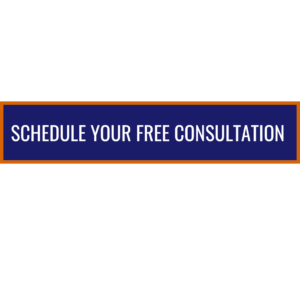
Trucking Industry Regulations: How Violations Can Lead to Accidents
The trucking industry plays a vital role in the transportation of goods across the United States. To ensure safety on the roads, federal and state governments have implemented stringent regulations governing various aspects of the industry, including vehicle maintenance, driver qualifications, and hours of service. Unfortunately, when these regulations are violated, it can lead to accidents with severe consequences. In this blog post, we will explore how violations of trucking industry regulations can contribute to accidents on our highways.
Common Trucking Industry Regulations
Before delving into the impact of violations, let’s review some common trucking industry regulations:
- Hours of Service (HOS): The Federal Motor Carrier Safety Administration (FMCSA) limits the number of consecutive hours a commercial driver can operate a vehicle without taking a break. These regulations are designed to combat driver fatigue and prevent accidents caused by drowsy driving.
- Vehicle Maintenance: Trucks must undergo regular inspections and maintenance to ensure they are safe for the road. This includes checks on brakes, tires, lights, and other essential components.
- Driver Qualifications: Truck drivers must meet specific qualifications and obtain the necessary commercial driver’s licenses (CDLs). They must also pass medical exams and meet age requirements.
- Weight Limits: Trucks must adhere to weight limits to prevent excessive wear and tear on roads and bridges.
Impact of Violations on Safety
- Fatigue-Related Accidents: Violations of HOS regulations can lead to driver fatigue, which is a major contributor to accidents. Fatigued drivers have slower reaction times and impaired decision-making abilities, increasing the risk of collisions.
- Mechanical Failures: Failure to adhere to vehicle maintenance regulations can result in mechanical failures, such as brake or tire malfunctions. These failures can cause accidents, especially on highways where high speeds make it challenging to react to sudden problems.
- Inexperienced or Unqualified Drivers: When drivers do not meet the necessary qualifications or lack experience, they may struggle to handle large commercial vehicles, increasing the likelihood of accidents.
- Overloaded Trucks: Exceeding weight limits can lead to difficulties in controlling the vehicle, particularly when braking or navigating curves. Overloaded trucks are more likely to tip over or experience brake failures.
- Improper Cargo Securement: Failing to secure cargo properly can result in shifting loads, leading to instability and accidents on the road.
- Hours of Service Violations: Drivers who exceed their allowable driving hours may become fatigued, making them more prone to errors and accidents. Violations can also lead to the falsification of logbooks, concealing the true extent of a driver’s hours on the road.
Enforcement and Consequences
Federal and state agencies, such as the FMCSA and the California Highway Patrol, enforce trucking industry regulations. When violations are discovered, the consequences can be severe:
- Fines and Penalties: Violators may face fines, penalties, or citations.
- Suspension or Revocation: Drivers’ CDLs may be suspended or revoked for serious violations.
- Liability in Accidents: Violations can increase liability in accidents, potentially resulting in legal actions and significant financial repercussions for trucking companies and drivers.
- Loss of Reputation: Companies with a history of violations may suffer reputational damage, impacting their ability to secure contracts and operate profitably.
Trucking industry regulations are in place to protect the safety of all road users. Violations of these regulations can have dire consequences, leading to accidents that result in injuries, fatalities, and significant economic losses. It is crucial for trucking companies, drivers, and regulatory agencies to prioritize compliance with these regulations to maintain the safety and integrity of the industry. Road safety is a shared responsibility, and vigilance in enforcing these rules is essential to prevent accidents and save lives on our highways.
A personal injury lawyer can help you understand your legal options and negotiate a fair settlement on your behalf. Click here to schedule a free consultation with one of our skilled California lawyers to learn more about your options. Or call our offices at 707 549 8166.

